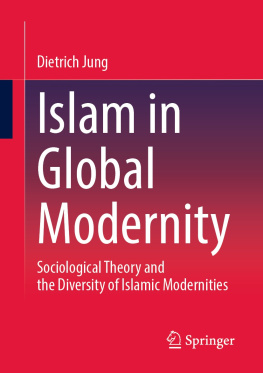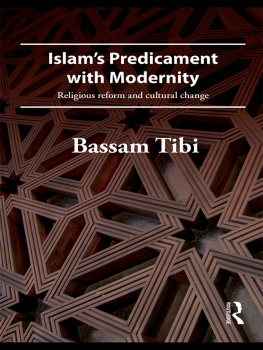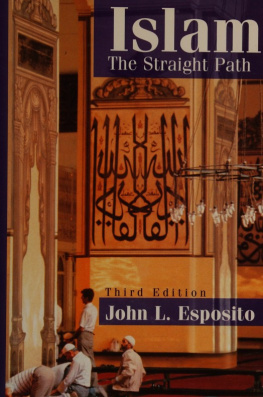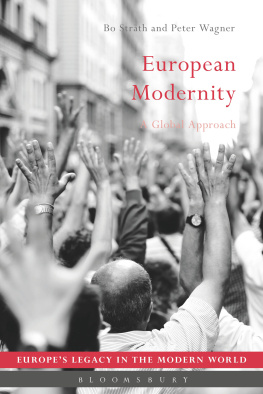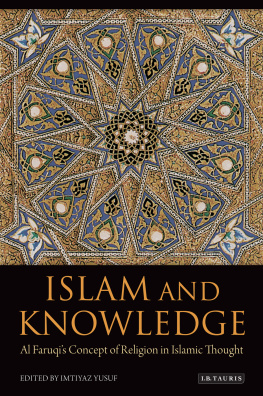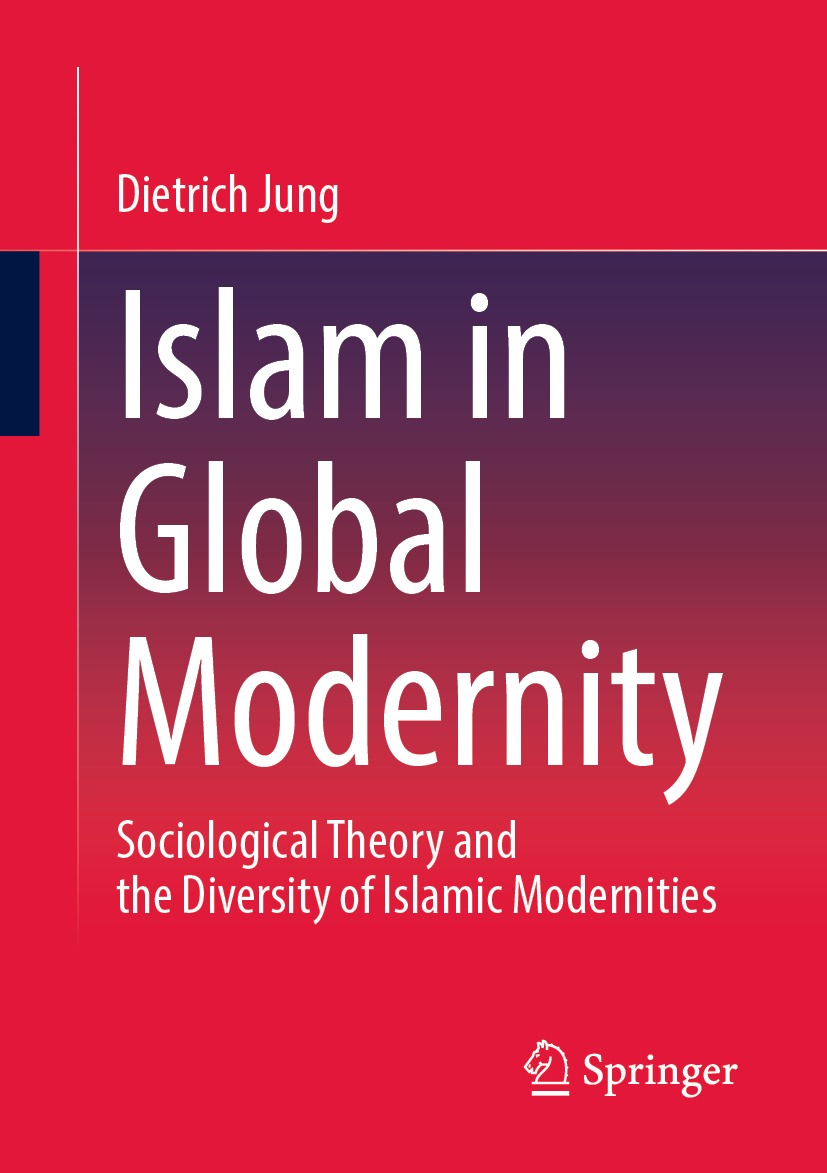Dietrich Jung
Center for Modern Middle East and Muslim Studies, University of Southern Denmark, Odense M, Denmark
ISBN 978-3-658-39953-5 e-ISBN 978-3-658-39954-2
https://doi.org/10.1007/978-3-658-39954-2
The Editor(s) (if applicable) and The Author(s), under exclusive license to Springer Fachmedien Wiesbaden GmbH, part of Springer Nature 2023
This work is subject to copyright. All rights are solely and exclusively licensed by the Publisher, whether the whole or part of the material is concerned, specifically the rights of translation, reprinting, reuse of illustrations, recitation, broadcasting, reproduction on microfilms or in any other physical way, and transmission or information storage and retrieval, electronic adaptation, computer software, or by similar or dissimilar methodology now known or hereafter developed.
The use of general descriptive names, registered names, trademarks, service marks, etc. in this publication does not imply, even in the absence of a specific statement, that such names are exempt from the relevant protective laws and regulations and therefore free for general use.
The publisher, the authors, and the editors are safe to assume that the advice and information in this book are believed to be true and accurate at the date of publication. Neither the publisher nor the authors or the editors give a warranty, expressed or implied, with respect to the material contained herein or for any errors or omissions that may have been made. The publisher remains neutral with regard to jurisdictional claims in published maps and institutional affiliations.
Responsible Editor: Jan Treibel
This Springer imprint is published by the registered company Springer Fachmedien Wiesbaden GmbH, part of Springer Nature.
The registered company address is: Abraham-Lincoln-Str. 46, 65189 Wiesbaden, Germany
Preface to Islam in Global Modernity: Sociological Theory and the Diversity of Islamic Modernities by Dietrich Jung
Depending on where you end up in the Middle East, or in parts of the world shaped by Islam in Africa, Europe or Asia: the path of knowledgeas Dietrich Jung teaches usis only a few (flight) hours away. From the Americasperhaps with the exception of flights from Peru or California to Indonesiathe journey usually takes a little longer than from Copenhagen or Munich. But its only a few hours either waynot a journey to another world. In the book presented here, which can only be described as impressive, Dietrich Jung demonstrates how this path of knowledge can look in practice and intellectually.
The path to knowledgeas Dietrich Jung shows usis based first and foremost, practically speaking, on not giving in to a myth of Islam or the Middle East. Not to fall prey to the obsession of an alleged uniformity of this great world religion and the social contexts that have been shaped by and through Islam. In this book, Dietrich Jung draws on his own biographical connection with contexts shaped by Islam from Damascus, via Turkey to Malaysia. He shows that the study of practicethat is, the study of the region in the region, its people and everyday life, its languages, the diversity of Islamic contextsshould be at the center, and not often source-resistant generalizations, as in Max Webers construction of Islam as a warrior religion, an idea that Dietrich Jung convincingly calls into question with reference to the civilizational achievements of contexts shaped by Islam and political communities. In this way, Islam in the Global Modern is not only an excitingly written, intellectually dense and yet always clearly formulated analysis, but also a book in the best sense of the Enlightenment. A spiritual movement that by no means represents a Western uniqueness, but is also deeply anchored in Islamic history, as Dietrich Jung repeatedly shows. The sharp difference between the Occident and the Orient, as it is also reflected in the mirror image of Orientalism, draws many currents of postcolonialism to a postcolonialism that, despite all its Enlightenment merits, is not productive. Dietrich Jung rightly deconstructs the often all too static assumptions and politically polemical assertions of a fundamental difference and shaping of all essential social contexts by colonial-induced power differences, as they are found in this theoretical perspective. See for yourselves! You will see that the world is modern everywhere, on the one hand, and shaped by many different modernity projects, on the other. This is perhaps the most important insight that can be gained from reading this bookand Dietrich Jung shows the heuristic value of such an approach by placing the references to his wide range of work on contexts shaped by Islam on the one hand and theories of the diverse, but still one modernity, on the other. Whether with a view to the entanglements between European orientalists and Islamic reformers of the nineteenth century. Whether with a view to the diversity of socially modern actors, such as NGOs in Jordan or Egypt, or the importance of the Muslim Brotherhood as a decidedly modern political organization. Whether with a view to the particularly worth reading presentation of the importance of social differentiation in early Islamic empires on the one hand and modern states (late Ottoman Empire and Turkey as well as Iran) on the other.
The path to knowledge, secondly, lies on the intellectual level. (The small, but by no means negligible aspect of Dietrich Jungs research stays at the University of the Bundeswehr Munich in the past years, which were framed by the joint consumption of Bavarian Leberkssemmeln). In particular, the path to knowledge lies in the willingness to not observe Islam and the Middle East through the false theoretical assumption of a fundamental differencea procedure which Dietrich Jung skilfully exposes as short-sighted. An alternative to this is to regard Islamically influenced regions in the sense of Dietrich Jungwho attaches his business card to the book as a sociologically interested Islamic scholaras part of modern society or as part of pre-modern entanglements. Dietrich Jung succeeds in excitingly reporting how the shock of modernity is not only relevant for colonial and post-colonial contexts, but ultimately shapes Western social and societal theory. How can we understand the world around us? Above all, the contradictions and risks and the high dynamics of social order? This sensitivity to the structures of social order-building lies at the heart of Webers and Durkheims work, as well as the writings of Peter Wagner, Andreas Reckwitz, Shmuel Eisenstadt, Michel Foucault, Niklas Luhmann or John W. Meyer. Dietrich Jung does not only convincingly apply these considerations to Islamically influenced contexts. Almost as an afterthought, Dietrich Jung synthesizes these different theories and thus shows himselfthis could stand on the back of his business cardas an Islamically informed social theorist.
The few flight hours from Europe or North America to Islamic regions of our world should therefore not only be an invitation to convince oneself of the diversity of global modernity on site, rather than to give in to the chatter of traditional cultures, backwardness, lack of enlightenment or fundamental differences, which is still widespread far beyond populist and Islamophobic intellectual and political circles in the West and is often conveyed in the media. The few flight hours to the region couldas I recommendideally be combined with the reading of the book by Dietrich Jung (based on Dietrich Jungs anecdote of the undisturbed reading of Al-Ghazali on one of his flights to North America). Islam in the Global Modernity is a slim book, written in an engaging prose. Even well-informed readers about Islamic regions will learn new things. And even those who believe that they know their Weber, Foucault, Said or Luhmann can further their education through the reading of the present book. Ultimately, there can be no convincing theory of society that is not comprehensively informed by empirical evidence. Elias, Luhmann, Foucault: all have developed their theories on the basis of comprehensive, but ultimately Western sources, but at the same time made the first (giant) steps towards convincing theories of world society or the global, modern world. But as Dietrich Jung rightly observes: world society theories are the social science counterpart to global history. A social scientific understanding not only of Islamic regions of the modern world society butas the history of globalization teaches us with its reference to entanglementsultimately also of the history of the modern West can only be gained on the basis of a comprehensive decentralized view of modernity. This implies to look at modernity from the perspective of its Islamic regions: no less and much more than this is what distinguishes the present book.

